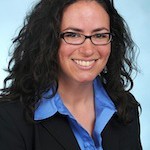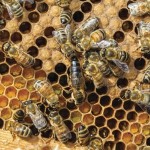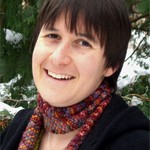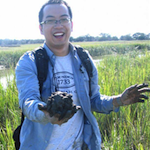Tag Environment
Children exposed to lead more likely to be suspended from school
Children who are exposed to lead are nearly three times more likely to be suspended from school by the 4th grade than children who are not exposed, according to a new University of Wisconsin–Madison study funded jointly by the Robert Wood Johnson Foundation and the Wisconsin Partnership Program Education and Research Committee.
Protecting our Pollinators
Bees, so crucial to our food supply, are dying off at alarming rates. CALS researchers are taking a close look at everything from the microbes in their hives to the landscapes they live in to identify in what conditions bees thrive.
Reading the fine print: Can conservation easements allow adaptive management?
As conservation easements gain popularity for protecting privately owned land, a University of Wisconsin–Madison scientist is trying to unravel a difficult question: In the face of environmental change, how well can these easements satisfy their conservation goals?
Ecologists map the benefits of our ecosystems
Two ecologists at the University of Wisconsin–Madison report this week (July 1) in the Proceedings of the National Academy of Sciences a novel approach to analyzing the production and location of 10 different ecosystem services across a landscape, opening the door to being able to identify factors governing their synergies and tradeoffs.
Professional degree a new tool for conservation leaders
In the face of unprecedented environmental challenges that demand novel solutions, the University of Wisconsin–Madison will soon begin accepting applications for a model graduate degree program to train tomorrow's conservation leaders.
Road block: Fixing aquatic ecosystem connectivity doesn’t end with dams
Over the last several years, state agencies and environmental nonprofit organizations have targeted dam removal as a way to quickly improve the health of aquatic ecosystems. Dams keep migratory fish from swimming upriver to spawn, block nutrients from flowing downstream, and change the entire hydrology of a watershed. From an ecosystem perspective, taking down a dam and returning a river to a more natural flow seems like a no-brainer.
New project will adapt dairying to climate change
Agricultural scientists from across the nation are embarking on a new five-year, $10 million, USDA-funded effort to identify dairy production practices that minimize the emission of greenhouse gasses (GHG) and will be more resilient to the effects of a changing climate.
Classes in the park unite middle schoolers with college students, nature
Trish O'Kane had reached a dead end. It was her first day teaching a capstone course in environmental studies at the Nelson Institute, and she was ready to forge ahead with a two-hour "college-style" lesson plan.
Céline Cousteau to speak at Earth Day conference
Marine conservation advocate and filmmaker Céline Cousteau will be a featured speaker at the seventh annual Nelson Institute Earth Day Conference on Monday, April 15.
Multicultural Student Center presents symposium on ‘race & place’
The Multicultural Student Center (MSC) and Institute for Justice Education and Transformation (IJET) at the University of Wisconsin–Madison will hold their annual spring symposium "Race &..." to encourage dialogue and action around racial identity and other social justice issues.
Publication tells how climate change data affect natural resource decisions
A wide array of natural and human systems are feeling the effects of Wisconsin's changing climate. But the state is adapting in a variety of ways to a warmer, wetter climate that is projected to see more frequent droughts, heat waves and heavy rainfalls by mid-century.
Students who recycle can win pizza
Students can win a free slice of Ian’s Pizza on Library Mall Friday while learning about the benefits of recycling.
‘Madison Reads Leopold’ to be held March 2 at Arboretum
As part of the Madison area's celebration of Aldo Leopold Weekend, there will be a free public reading from "A Sand County Almanac" and other Leopold works on Saturday, March 2, at the UW Arboretum Visitor Center. Leopold was the first research director at the Arboretum and was closely involved in its design.
Weston Roundtable adds distinguished speakers on sustainable water, energy
A pair of leading figures in the field of sustainability - Jerry Schnoor of the University of Iowa and Dave Allen of the University of Texas at Austin - will speak at the University of Wisconsin–Madison this semester in two Weston Distinguished Lectures.
Mapping effort charts restoration tack for Great Lakes
As the federal government builds on its $1 billion investment to clean up and restore the Great Lakes, an international research consortium has developed innovative new maps of both environmental threats and benefits to help guide cost-effective approaches to environmental remediation of the world’s largest fresh water resource.
Religious studies course to focus on environmental crises
A new "gateway" course in religious studies (RELS101, Religions in Global Perspective) will move beyond the traditional survey approach and give instructors leeway to choose a more timely and effective focus. The first edition, on religion and the environment, will be taught by Anna M. Gade, associate professor of religious studies and languages and cultures of Asia. Inside UW–Madison discussed the new course with Professor Gade.
Arboretum Local Products Fair encourages shopping ‘green’ and local
Holiday shopping will take on a local flavor at the fourth annual "Close to Home: Arboretum Local Products Fair" Sunday, Nov. 25 at the UW Arboretum.
Environmental leader to speak on ‘America the Possible’ Nov. 12
Author and environmental law expert Gus Speth will describe his vision of a more economically and environmentally sustainable future next week at UW–Madison.
Stirred, not shaken, lake mixing experiment shows promise
The question is simple: can a lake be cleansed of a pernicious invader by simply raising the water temperature?






